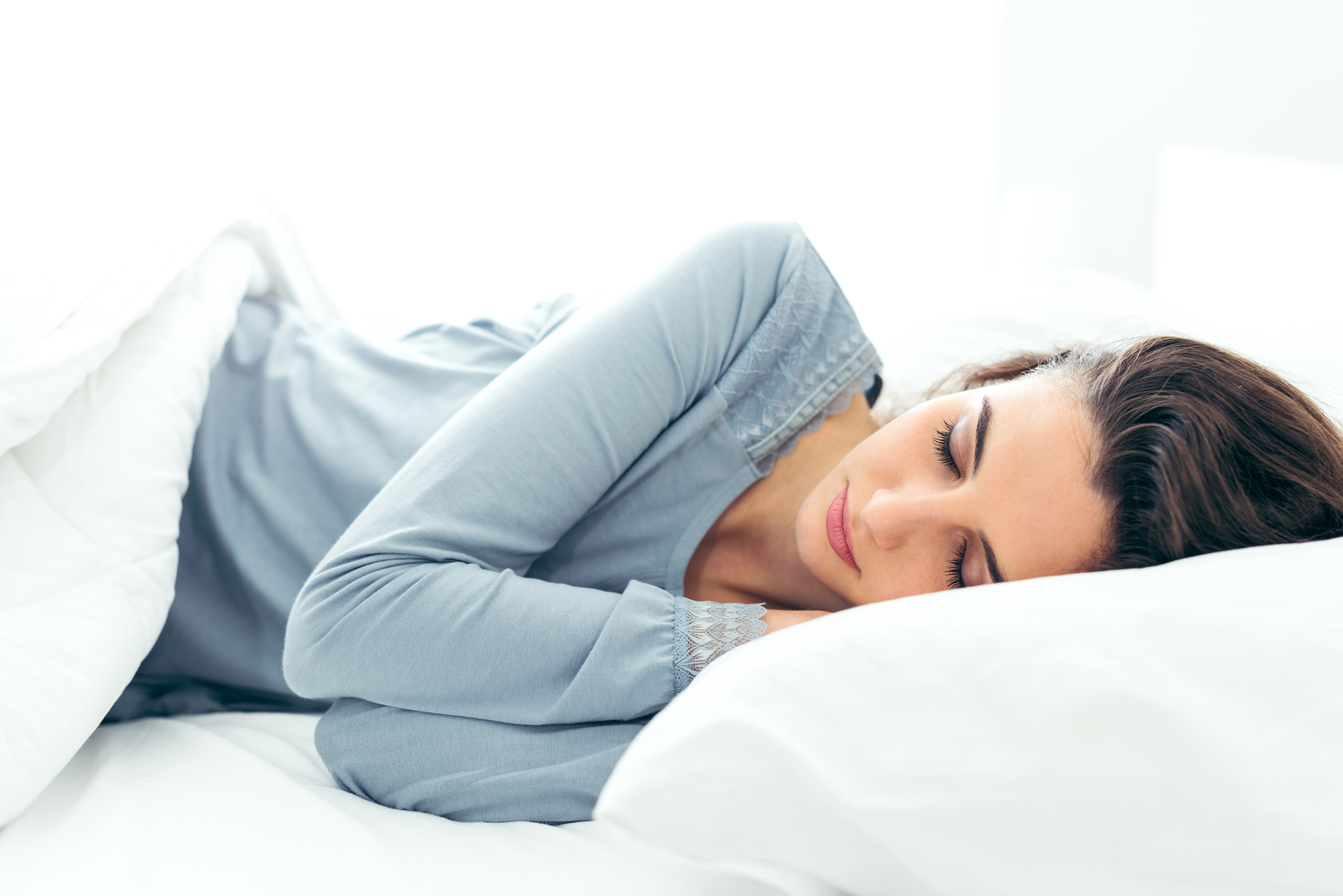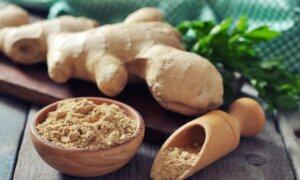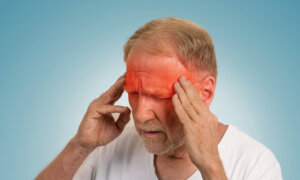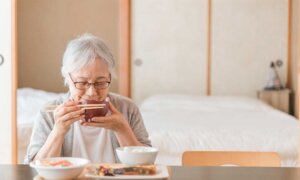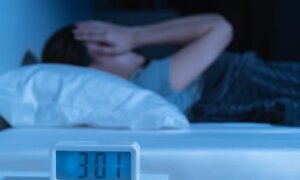Sleep takes up about one-third of our lives, yet many people face challenges such as difficulty falling asleep or poor sleep quality. Traditional Chinese medicine (TCM) offers various effective methods to improve sleep, including sleep-enhancing foods, herbal teas, and acupressure massage.
Types of Insomnia
On the “Health 1+1” program, Jessie Huang, a U.S.-based TCM practitioner and third-generation descendant of imperial court physicians, explained that insomnia can be categorized as either primary or secondary.
Primary insomnia refers to a standalone sleep disorder that cannot be attributed to any other health condition. It is typically managed through psychological and behavioral therapy, adjustments to sleep habits, or, when necessary, medication.
Secondary insomnia, on the other hand, is linked to other physical or mental health conditions, such as anxiety, depression, or chronic pain. Treating secondary insomnia requires addressing the underlying condition first; once the root cause is managed, the sleep problems usually resolve.
From the perspective of TCM, insomnia is closely linked to the “seven emotions”: joy, anger, anxiety, rumination, grief, fear, and shock. Experiencing these intense emotions before bedtime can disrupt sleep. Factors such as overeating, going to bed hungry, overexertion, or excessive idleness during the day can also affect nighttime sleep quality.
Huang suggests drinking a sleep-promoting tea in the afternoon, incorporating sleep-inducing foods into your dinner, and massaging specific acupoints a few hours before bedtime to improve sleep quality.
Sleep-Promoting Herbal Tea
Ingredients:
- 17 ounces (500 milliliters) water
- 0.35 ounce (10 grams) roasted jujube seeds (suan zao ren)
- 0.35 ounce (10 grams) lily bulbs (bai he)
- 0.35 ounce (10 grams) Poria cocos (fu ling)
Instructions:
- Add the above ingredients to water and simmer for 30 to 50 minutes.
- Drink it as tea every afternoon. For people with mild sleep issues, drinking it consistently for 1 to 2 weeks may be sufficient, while those with chronic sleep problems may need to continue for a more extended period.
Research has shown that jujube seeds help calm the mind, ease anxiety, and support cardiovascular health. Poria cocos (a mushroom) extract helps
shorten sleep latency (the time it takes to fall asleep) and increases sleep duration. Lily bulbs exhibit antidepressant properties in
animal studies and are particularly effective for treating insomnia caused by depression.
Foods That Promote Better Sleep
In addition to herbal teas, you can incorporate the following foods into your diet to help improve sleep:
- Millet: Millet is known for its ability to strengthen the spleen and stomach while calming the mind and promoting better sleep. Huang shared that a senior TCM practitioner at her school, who lived to be over 100 years old, drank millet porridge every night in his later years. Research has found that tryptophan in millet promotes serotonin production, which supports brain health and induces sleepiness.
- Longan: Longan helps nourish the heart and soothe the mind. One study indicated that the polysaccharides in longan protect nerve cells through antioxidant mechanisms.
- Lotus seeds: Lotus seeds can be used in porridge or soup. An animal study found that lotus seed extract possesses neuropharmacological activity, helping induce sleep more quickly and improve sleep quality.
- Lily bulbs: Lily bulbs are both delicious and valued for their medicinal properties. In TCM, they are commonly used to treat depression. Mix 2.17 to 3.17 ounces (60 to 90 grams) of fresh lily bulbs with 1 or 2 teaspoons of honey for a dietary remedy. Steam the mixture until cooked, and consume it before bedtime.
- Celtuce: Celtuce, a Chinese lettuce, contains a milky white sap known for its calming and sedative properties. To prepare, slice the celtuce with the skin on, cook it, and drink the broth. Consuming it before bedtime is particularly effective for promoting sleep.
- Lotus root: A 2022 study showed that consuming lotus root not only aids in falling asleep but also increases the duration of deep sleep.
Bedtime Acupressure Massage
According to TCM, meridians are the channels through which energy flows in the human body. Along the meridians are specific points known as acupoints, which possess unique functions. Stimulating these acupoints through techniques like acupuncture or massage can help promote smoother energy flow.
Studies have shown that acupuncture can regulate brain activity in patients with primary insomnia, helping promote better sleep.
Massaging acupoints one to two hours before bedtime can calm the mind and make it easier to fall asleep. For example, if you aim to sleep at 10 p.m., start massaging at 8 or 9 p.m. Massaging each acupoint for three to five minutes is sufficient to achieve noticeable benefits.
Baihui Acupoint
The baihui acupoint, located at the center of the crown of the head, is known for its calming and sleep-promoting effects.
Sishencong Acupoint
Stimulating this acupoint produces calming effects and can enhance cognitive function, helping improve memory in older people.

Location of the Baihui and Sishencong acupoints. (The Epoch Times)
Yintang Acupoint
Gently pressing this acupoint with your finger for a few seconds can help alleviate headaches and improve insomnia.

Location of the Yintang acupoint. (The Epoch Times)
Neiguan Acupoint
To locate the neiguan acupoint, bring the index, middle, and ring fingers of one hand together and place them on the inner side of the opposite wrist. Align the ring finger with the crease where the palm meets the wrist. The point where the index finger rests, located between two tendons, marks the neiguan acupoint. This acupoint is known for its calming and tranquilizing effects.

Location of the Neiguan acupoint. (The Epoch Times)
Shenmen Acupoint
The shenmen acupoint is located on the crease where the palm meets the wrist when your palm is facing upward, in the depression at the base of the little finger. This acupoint is known for its ability to nourish the heart and promote mental calmness.

Location of the Shenmen acupoint. (The Epoch Times)
Lifestyle Changes to Support Better Sleep
Huang recommends adopting the following lifestyle habits to improve sleep quality.
Maintaining a Healthy Diet
A healthy diet plays a crucial role in supporting sleep quality. In the evening, avoiding greasy, spicy, or hard-to-digest foods is best. Additionally, avoid overeating or going to bed too hungry, as both can disrupt sleep quality.
A prospective cohort study found that a high intake of refined carbohydrates increases blood sugar fluctuations and raises the risk of insomnia, while diets rich in vegetables, fruits, and whole grains are linked to a lower likelihood of insomnia.
Some people believe that having a few alcoholic drinks at night can aid sleep, but Huang pointed out that drinking alcohol in the evening may lead to fragmented sleep. This effect is particularly pronounced in people with breathing difficulties or those who tend to snore, as drinking before bed can worsen oxygen deprivation.
A 30-year population study found that higher alcohol consumption was associated with poorer sleep quality in older men. The men were also more likely to wake up at night and feel tired in the morning.
Establishing a Regular Sleep Schedule
Maintaining a routine and minding the biological clock is essential. Once the biological clock is disrupted, it can take a long time for the body to readjust. If you stayed up late the night before, waking up at your usual time is recommended to keep your schedule on track.
That said, more sleep is not always better for your health. Six to eight hours of sleep per day is sufficient for most adults.
Excessive daytime rest can disrupt nighttime sleep, so it is best to limit napping during the day.
Cultivating a Positive Mindset
Cultivating an optimistic and relaxed mindset is key. For those dealing with insomnia, it is essential not to become overly fixated on sleep. Try not to dwell too much on it, even if you sometimes struggle to fall asleep.
Engaging in Relaxing Activities
Engaging in activities that promote relaxation, such as listening to soothing music, practicing meditation, or getting a massage, can help improve sleep at night.




